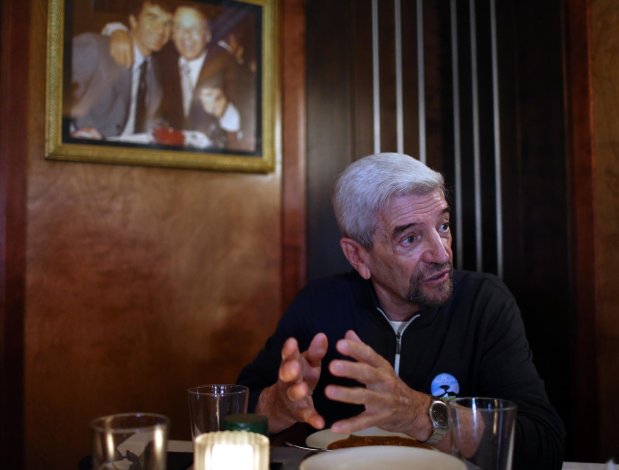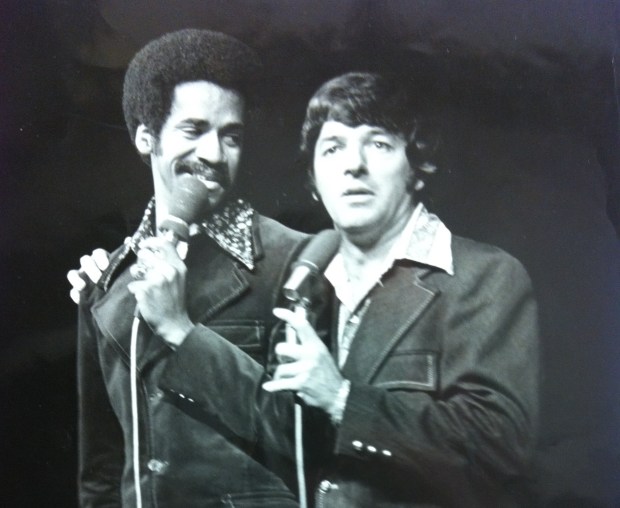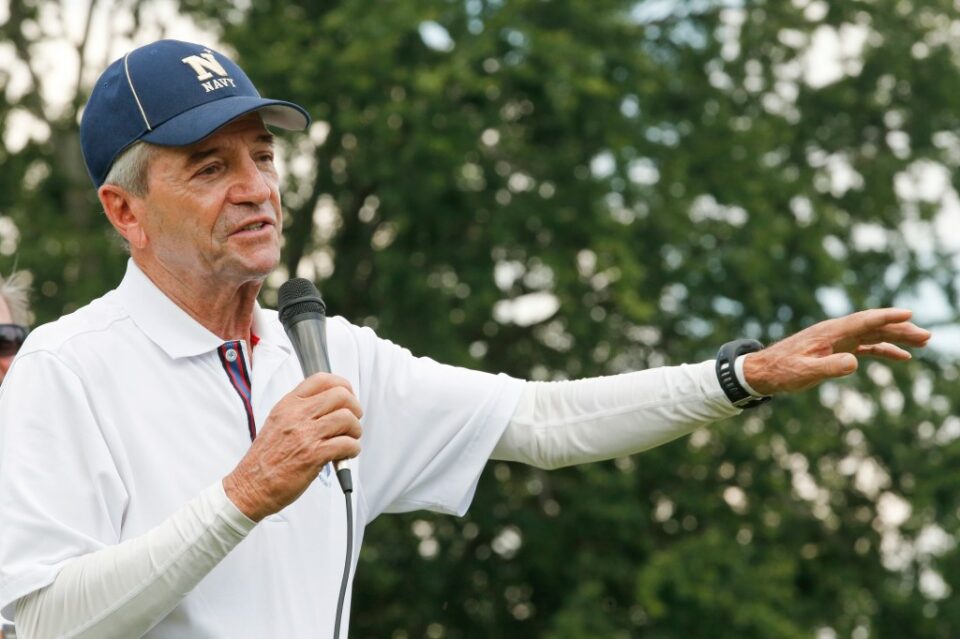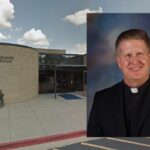Tom Dreesen wasn’t long into his career as a comedian when he had the opportunity to meet one of his professional heroes.
He and humorist Jack Benny, already long famous, appeared together on Irv Kupcinet’s Chicago talk show “Kup’s Corner.” Both had some time to kill afterward and Dreesen used the opportunity to pick Benny’s brain.
Benny, a Waukegan native, asked Dreesen where he was from.
“I said Harvey, and he said talk about that,” Dreesen recalled. “Talk about Harvey and what it was like growing up in Harvey. When you’re a star, you can talk about the government or the airlines or whatever you want, but when you’re new, you’re introducing yourself to the audience.”
The advice hit home, and Dreesen has been talking about Harvey and his south suburban roots throughout a career that’s taken him to Los Angeles, regular “Tonight Show” appearances and Frank Sinatra’s inner circle.
“I appreciate it when people say he never forgot where he came from,” Dreesen said. “You couldn’t grow up the way I did and forget where you came from.”
The site of his childhood home is marked now only by a grassy lot, but 155th Street in Harvey was renamed Dreesen Street in 1992, decades after he ranged it regularly as “a raggedy kid with holes in his shoes.”
He sold newspapers on street corners as a youngster and got a job as a pin setter at Bowl Center at 157th Street and Center Avenue, where he encountered “some of the nicest people and some of the greatest degenerates I met in my life.”

Between the bowling alley bar and the town’s plethora of taverns, including one where his father spent much of his time when he wasn’t working, Dreesen developed an outsized respect for watering holes.
“I thought being a tavern owner or bartender was the epitome of success,” he said. “You don’t think outside your environment. In Harvey, there were steel mills and 36 taverns.”
His perspective started to change when he hitchhiked to greener pastures down Wood Street and started working as a golf caddy at age 11, first for a year at Calumet Country Club and then Ravisloe Country Club in Homewood.
“All of a sudden, there I was in a totally different environment — this beautiful country club,” Dreesen said. “I was caddying with doctors and lawyers and Mr. Florsheim, and very successful men and women in the Chicago area. And they didn’t treat me like a servant, they treated me like a son. They treated everyone that way.
“I started to believe I could be more than just a bartender, or own a tavern. That had an incredible effect on me, being a caddy at Ravisloe. That’s one of my fondest memories of growing up in that area.”
Later, after a stint in the armed services and working as a teamster at Jones Motor in Markham, Dreesen started selling life insurance, and his Ravisloe connection continued to pay off.
“If you ever went to a Ravisloe member who owned a company, they let you right in,” he said.
He eventually joined the civically minded Harvey Jaycees, where he proposed a program to combat drug use among young people by going into grade schools and “using comedy — making them laugh.”
“Once you got their attention, you could plant the seeds of the ills of drug abuse,” Dreesen said.
Early on he was joined by a Markham resident who’d just joined the Jaycees, Tim Reid. They were a hit in the Harvey classrooms and the program was deemed an “instant success.” A youngster at St. John the Baptist School in Harvey “said we were so funny we ought to become a comedy team,” Dreesen recalled.
It was a good idea, though not one that was easily accomplished.
“The thought of a black and white comedy team — nobody had ever done that before,” Dreesen said. “There weren’t any comedy clubs in those days so we had to go into nightclubs.”
Six years later, the Tim and Tom team had achieved marked success, doing shows in prestigious rooms all over the country, and breaking down racial barriers along the way.

Dreesen and Reid are still friends, and they’re reuniting in Chicago May 16 for a Newberry Library program, “Comedy in Black and White: Tim Reid and Tom Dreesen — a Night at Mister Kelly’s.”
“When we started out in that first club in Chicago Heights, we wanted so badly to get to Mister Kelly’s,” Dreesen said. “That’s when you knew you really made it — when you made it too Mister Kelly’s you made it to the big time.
“It was 45 minutes away, but it took us three and a half years to get there.”
The program is part of a larger Newberry exhibition about Mister Kelly’s, a legendary Chicago nightclub that helped launch the careers of many entertainers, and Reid and Dreesen were no exception. Reid, who had moved to Park Forest from Markham, went to Los Angeles and became a television star on shows such as “WKRP in Cincinnati.” Dreesen moved west too and began a career ascent that led him to guest host for David Letterman and tour for over a decade with Sinatra.
But first, Tim and Tom had ground to break in the Chicago area.
“We did Bloom High School (in Chicago Heights), we did Thornton High School — anywhere there was racial tension, and there was a great deal of racial tension there,” Dreesen said. “If you look at the backdrop of that era, the Civil Rights Act was five years removed. Bobby Kennedy was assassinated. Martin Luther King was assassinated. The Vietnam War was raging. America was in turmoil.
“Students were protesting across the country. African Americans were rioting in almost every major city, including in Harvey — in the neighborhood I grew up in. We were trying to make people laugh.”
Though there was no official segregation, the nightclub circuit was still divided by race. “There were still Black clubs, and there were white clubs,” he said. Tim and Tom played both.
“Tim and I walked out on stage and we’d hear a hush,” Dreesen said. At a show in Chicago Heights, “a guy put out a lit cigarette in Tim’s face. And he tried to beat the bejesus out of me. I boxed in the service but he outweighed me by a hundred pounds.”
At a show at the University of Illinois, someone hit Dreesen in the face with a snowball while he was performing.
“That didn’t happen often, but the interesting thing about racism in those days, if there was a Black guy who hated white people, he wasn’t mad at me. He was mad at Tim for being with me,” Dreesen said. “And the same thing with white clubs — if there was a redneck who hated Black people, he wasn’t mad at Tim, he was mad at me.
“But it wasn’t prevalent. There were people who really embraced us — many really enjoyed what we did. But there was always that one element.”
He remembered a show at Eisenhower High School in Blue Island where a Black student came up after a show and said Tim and Tom helped him feel more comfortable reaching out to prospective white friends.
“That happened to us more than you’ll ever know,” he said. “We weren’t preaching. We were just up there having fun, making each other laugh and sometimes attacking racial stereotypes with humor. We turned that into comedy.”
Before he takes the stage with Reid for the Newberry Library program, Dreesen will present his solo show at 4 p.m. May 11 at the Den Theater in Chicago’s Wicker Park neighborhood. Titled “From Harvey to Hollywood, The Man Who Made Sinatra Laugh,” the show will include plenty of stories from his time in Harvey and the south suburbs, as well as his touring days with Sinatra, Smokey Robinson, Gladys Knight and others.
There’s a good chance while he’s in town, Dreesen will take a drive through Harvey and down Dixie Highway to Homewood and Chicago Heights to see some of the spots where he worked his way up the ladder of fame and success. Despite his humble origins, he’s not afraid to reminisce.
“A wise man told me, in the end all you have is memories, so make some good ones,” Dreesen said. “I made some really good ones.”
Landmarks is a weekly column by Paul Eisenberg exploring the people, places and things that have left an indelible mark on the Southland. He can be reached at [email protected].
Paul Eisenberg , 2024-04-06 12:15:30
Source link


